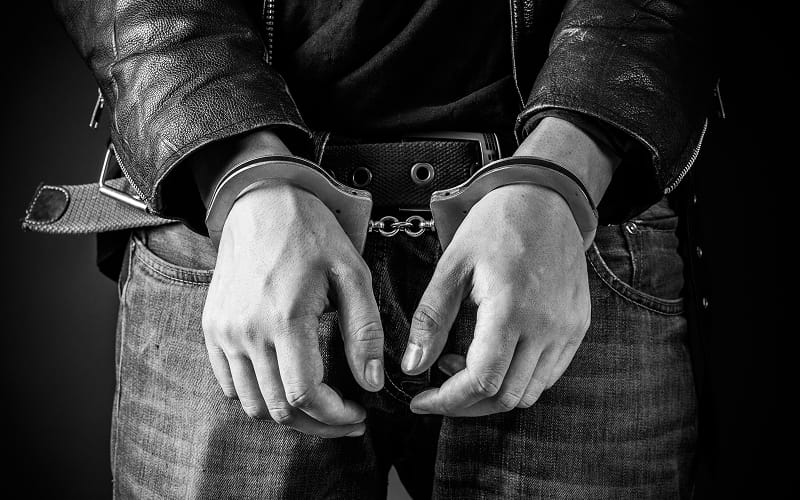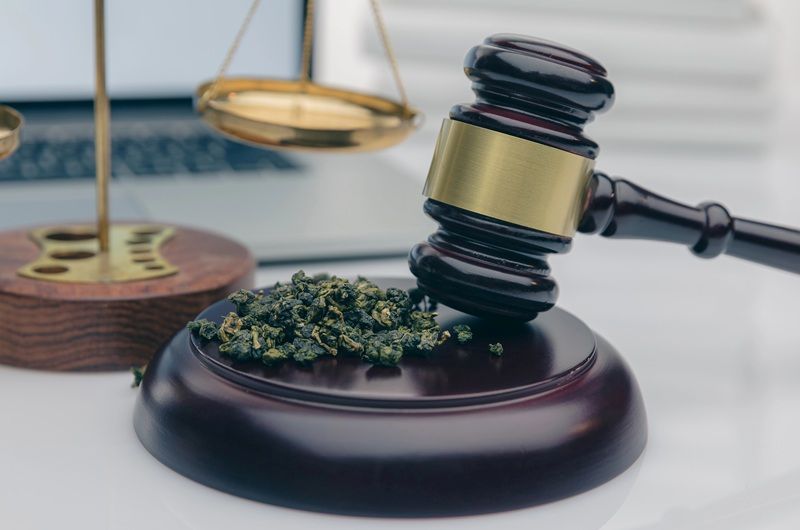A sudden arrest for a domestic assault can turn your life upside down in an instant. The legal system moves quickly in these cases, and without knowing what to expect, you could make mistakes that hurt your defense. Understanding the steps ahead can help you prepare and protect your rights.
Legal procedures after an arrest can be confusing and stressful. In this article, learn about the police response, mandatory arrest rules, the booking process, court hearings, and protective orders. See how legal representation can impact the outcome of your case.
When Do Officers Have To Make An Arrest?
In Virginia, mandatory arrest laws require officers to take someone into custody in certain domestic assault cases when they find probable cause. Unlike other offenses, they can’t always walk away or let those involved settle things privately. Even if the alleged victim refuses to press charges, state law pushes the case forward to prevent further harm.
When officers arrive, they focus on figuring out what happened. They check for injuries, examine the surroundings, and look for signs of a struggle or property damage. Witness statements, 911 call recordings, and physical evidence like bruises or torn clothing help them decide if an arrest is necessary. If they gather enough proof of an assault, they act.
Virginia law requires officers to arrest a person if they believe that an individual assaulted a family or household member. It includes spouses, ex-spouses, cohabitants, and people who share a child. Officers must take someone into custody if they violate a protective order, no matter the circumstances.
These laws aim to prevent violence, but quick decisions based on limited information sometimes lead to arrests. Officers must choose a course of action within minutes, especially when both parties offer conflicting stories. As a result, they arrest people who believe they did nothing wrong.
Since the legal process proceeds without the alleged victim’s cooperation, anyone facing charges must take the situation seriously. The following steps including booking, court hearings, and potential protective orders can all impact the case outcome.
What Should You Expect During The Booking Process?
After an arrest, officers take the accused to the police station or jail for booking. This process formally records the individual’s arrest and gathers identifying information. Depending on the facility’s workload and the case’s specific details, it may take a few minutes to several hours.
Recording Personal Information
Officers start by documenting basic details such as the individual’s name, date of birth, and address. They also log the time and location of the arrest and the charges being filed. Sometimes, they may ask for additional identifying details, such as height, weight, and distinguishing marks.
Fingerprinting & Photographing
Officers enter the accused’s fingerprints into state and national databases. They use these prints to check for prior arrests or outstanding warrants. They also take a mugshot from multiple angles, creating a permanent arrest record. Even if the court drops the charges, these images and fingerprints stay on file.
Inventory Of Personal Belongings
Officers take personal belongings and document each item before moving the individual to a holding cell. They securely store wallets, phones, jewelry, and other items until release. Further, they provide a receipt listing everything collected. After release, the individual returns their belongings unless officers keep certain items as evidence.
Once the booking is complete, the accused remains in custody or awaits a bail hearing. The following legal step is the arraignment, where a judge formally presents the charges and determines conditions for release.
What Happens At Your First Court Appearance?
The first court appearance, known as the arraignment, usually occurs within 24 hours of an arrest. This hearing formally introduces the legal process, where the accused stands before a judge to hear the charges. The court ensures that the individual understands their rights and the allegations against them.
One of the first things the judge does is read the charges aloud. It ensures that the accused knows what they are facing. The judge may also explain the potential penalties associated with the offense. While this part of the process is procedural, it reinforces the seriousness of the situation.
The judge then considers bail, determining whether the accused can be released from custody while awaiting trial. Several factors influence this decision, including the nature of the charges, prior criminal history, and the likelihood of appearing in court.
The judge may decide to deny bail if they believe the accused poses a risk to the community or might not return for future hearings. Sometimes, the court releases the individual on their recognizance, meaning they don’t have to pay bail but must promise to appear in court.
Legal representation at this stage can impact the outcome. A defense attorney can argue for lower bail or challenge any unreasonable conditions. Without legal guidance, the accused may struggle to present a strong case for release, increasing the risk of remaining in custody.
Once the judge addresses these key issues, the case moves to the next phase. It may involve pre-trial hearings, plea negotiations, or trial preparation. The arraignment may be brief, but its impact can shape the course of the entire case.
How Can A Protective Order Affect You?
After a domestic assault arrest, the court may issue a protective order that limits your contact with the alleged victim. Even if you believe the situation was a misunderstanding, breaking the terms can lead to additional charges and harsher penalties. Here are some ways it can affect you:
- No-Contact Restrictions: The court may ban you from calling, texting, emailing, or communicating with the alleged victim in any way.
- Stay-Away Orders: these orders require you to stay a certain distance from the victim’s home, workplace, or other frequent locations.
- Temporary Removal from Home: If you live with the alleged victim, the order may force you to move out before your case goes to trial.
- Firearm Restrictions: You may need to surrender any firearms while the order remains in effect.
- Child Custody Limitations: If you share children with the alleged victim, the order may restrict custody, visitation, or communication with them.
- Mandatory Counseling: The court may require you to attend anger management or domestic violence counseling sessions.
Protective orders take effect quickly and can last weeks, months, or longer. Breaking any terms intentionally or accidentally can bring new criminal charges. If you receive a protective order, you must understand the restrictions and take legal steps to challenge unfair conditions.
What Are Some Questions About Domestic Assault?
After a domestic assault arrest, you likely have many concerns about what comes next. Understanding your rights and the legal process helps you make better decisions and avoid missteps. Below are answers to some of the most common questions people ask in this situation.
Can I Contact The Alleged Victim After My Arrest?
If the court issues a protective order, you cannot call, text, or message the alleged victim in any way. Even a simple apology or attempt to explain could violate the order and bring additional charges. Always review the order carefully and follow all restrictions to avoid further legal trouble.
What Penalties Could I Face For A Conviction?
The court determines penalties based on the severity of the case, which may include fines, probation, court-ordered counseling, or jail time. A first-time offense usually carries misdemeanor charges, but prior convictions or serious injuries could lead to harsher punishment.
How Does An Attorney Help In A Domestic Assault Case?
An attorney reviews the charges, explains your legal options, and builds a defense strategy. They negotiate with the prosecution to reduce penalties or dismiss charges if the evidence is weak. You may struggle to challenge accusations and protect your future without legal representation.
Domestic assault charges bring serious consequences, but proper legal strategy can change the outcome. Hiring an attorney gives you a strong defense and a better chance at protecting your rights.
How Can Fairfax County Criminal Attorneys Defend Your Case?
A domestic assault charge can turn your life upside down, affecting your freedom, reputation, and future. At Fairfax County Criminal Attorneys in Fairfax County, we know how high the stakes are, and we’re here to stand by your side. You don’t have to face the legal system alone we will guide you through every step and fight to protect your rights.
Every case is different, and the details matter. We take the time to listen to your side of the story, examine the evidence, and identify weaknesses in the prosecution’s case. Whether that means challenging false allegations, questioning law enforcement procedures, or negotiating for reduced penalties, we build a defense strategy that fits your situation.
Your future is too important to leave to chance. From your first court appearance to potential trial proceedings, we provide the legal support and advocacy you need. If you’re facing charges, contact us soon so we can start working on your defense.
A domestic assault arrest in Virginia triggers a legal process that includes police investigations, booking, court hearings, and potential protective orders. Each step can affect personal freedom, family relationships, and future opportunities. Understanding the process helps in making informed choices and avoiding costly mistakes.
Defending against these charges requires legal knowledge and a strong strategy. The proper defense can challenge weak evidence, negotiate better terms, and protect legal rights. Fairfax County Criminal Attorneys provide the guidance needed to fight these charges effectively.






